Iron vegan – suitable vegetable iron sources and many tips to prevent iron deficiency!
An undersupply of iron is the most common nutrient deficiency worldwide. According to the World Health Organization, around 30-35% of the population suffer from an iron deficiency, which corresponds to around 2 billion people. Iron is an essential nutrient that is of great importance for many important bodily functions. Many people still think that iron is mainly found in meat. The fact that vegans do not consume enough of it and are hit by an iron deficiency is one of the most common myths about plant nutrition. Now, according to recent scientific studies, people who eat vegan are no less nutritious than meat eaters. In this article you will find everything about iron vegan, as well as the best vegetable iron sources and many tips for preventing iron deficiency.
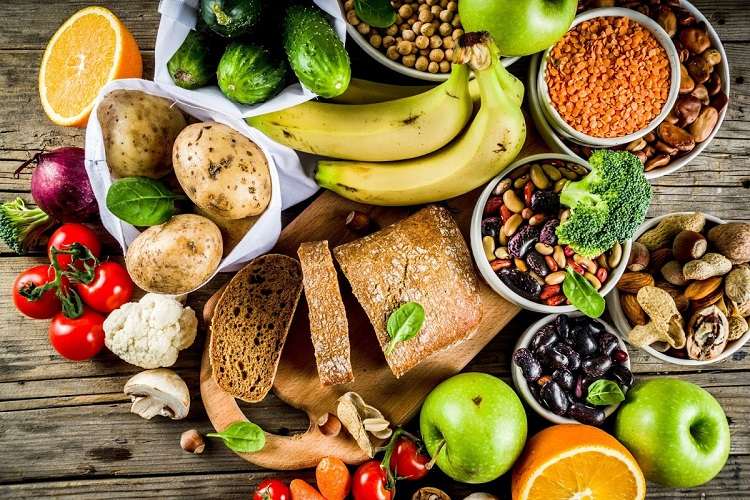
Iron plays a major role in many essential functions in our body and is particularly important for the binding of oxygen to hemoglobin in the red blood cells. It is also a component of vital enzymes and strengthens our immune system. The nutrient is available in the food in two forms – heme iron and non-heme iron. Hämeisen occurs only in animal products and has a bioavailability of approximately 15 to 35%. Non-heme iron, on the other hand, occurs primarily in plants and is only absorbed by the body to about 2 to 20%. For this reason, the idea prevails that vegans cannot achieve an adequate iron supply. However, a 2009 Japanese study found that the type of diet did not correlate with iron deficiency. In other words – just like an unhealthy omnivorous diet, an unhealthy plant-based diet can lead to different nutritional deficiencies.
Iron vegan – how much iron do we need per day
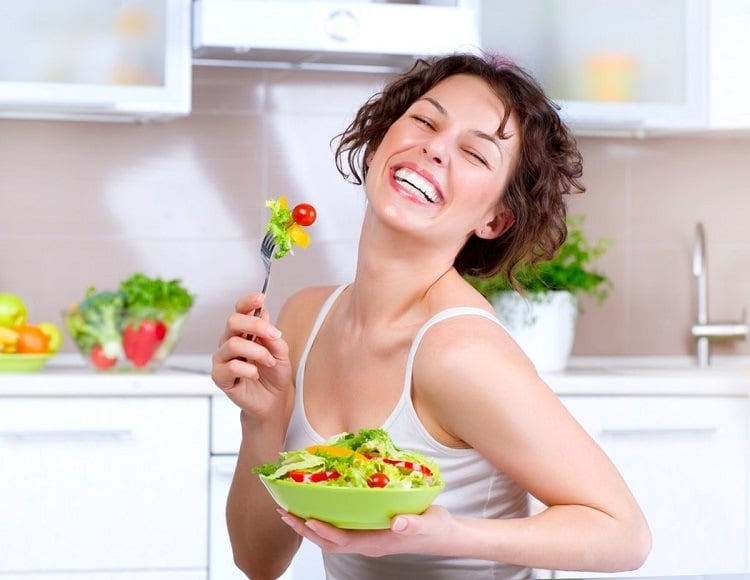
The amount of iron our body needs per day depends on many different factors, such as gender, age and physical activity. According to the World Health Organization, the recommended values for adult men are 10 milligrams, while women need to consume around 15-16 milligrams of iron. The reason for the higher need in women is that they lose a lot of iron through the menstrual period. A daily intake of 30 milligrams is recommended so that pregnant women also provide the unborn child with the nutrient. Since non-heme iron is poorly absorbed by our body, the values for iron vegan and vegetarians are 1.8 times higher than for meat eaters. However, the quantities mentioned do not indicate the actual need. Since only a small part of the iron absorbed is absorbed by the body, much more of it has to be consumed.
Preventing iron deficiency in plant-based nutrition – helpful tips and tricks
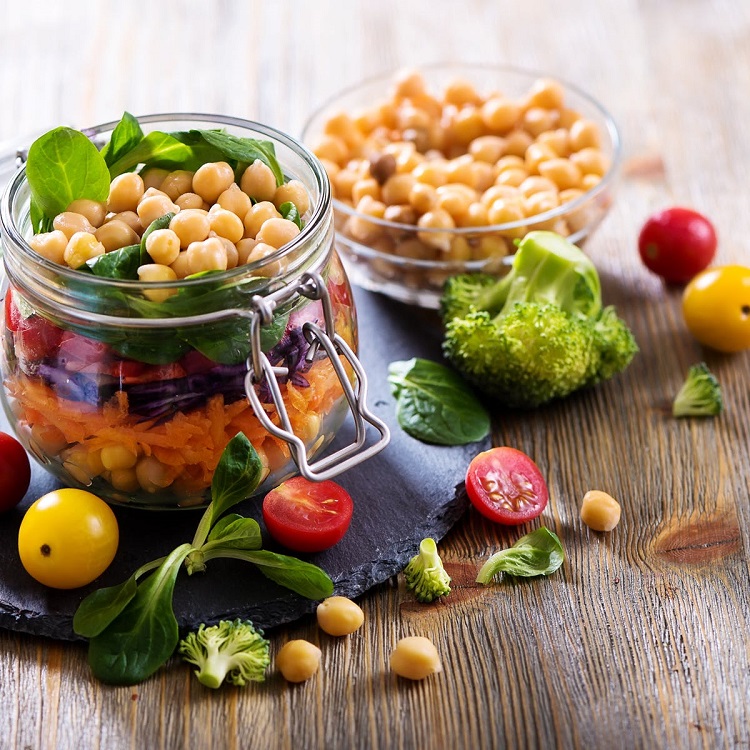
Those who do not consume animal products should pay attention to a healthy and varied diet, because this is the only way to supply the body with all the important nutrients. The right composition of the food is of great importance for an adequate iron intake. While some can promote admission, they can inhibit others. Below are some helpful tips on how to cleverly design your meal plan.
- Eat foods rich in vitamin C – According to the scientific study, combining iron-rich foods with foods rich in vitamin C can increase iron absorption by as much as 300%. Try adding more citrus fruits like oranges, strawberries and grapefruits to your diet. Other foods that are high in vitamin C include tomatoes, peppers, broccoli, Brussels sprouts, and green leafy vegetables.
- Onions and garlic promote iron absorption – A study conducted in India found that eating onions and garlic, whether raw or cooked, can increase iron and zinc intake.
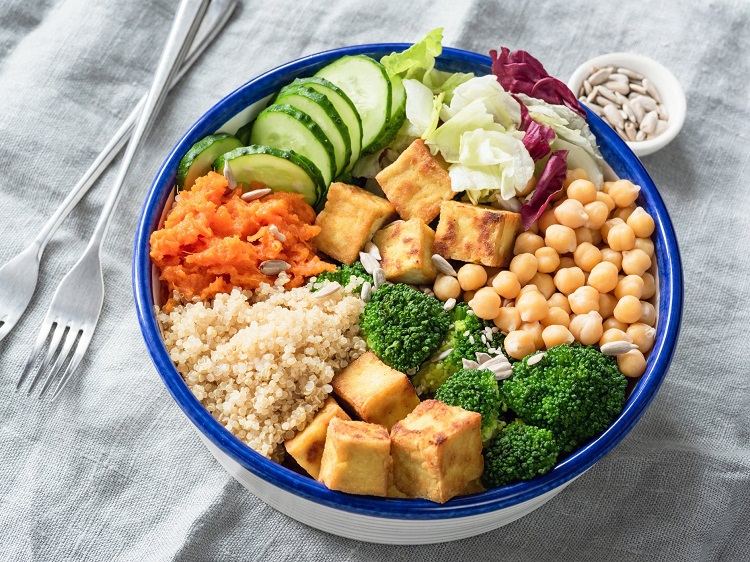
- Soaking, fermenting and germinating of grains and legumes reduces the amount of phytates contained in them and can thus improve the absorption of iron vegan.
- Cook the dishes in a cast iron pan – Foods that are prepared in a cast iron pan usually provide 2 to 3 times more iron.
- It's best to spread iron-rich meals throughout the day – This may sound strange at first, but it is true – the more iron a meal contains, the less of it is absorbed by the body. For this reason, it is recommended to add a good source of iron to every meal. This ensures that the body can use as much of it as possible. This is what a meal plan could look like: pumpkin seeds and sesame seeds in the muesli in the morning, a green smoothie as a snack, leaf salad with oranges for lunch and tahini in the salad dressing in the evening.
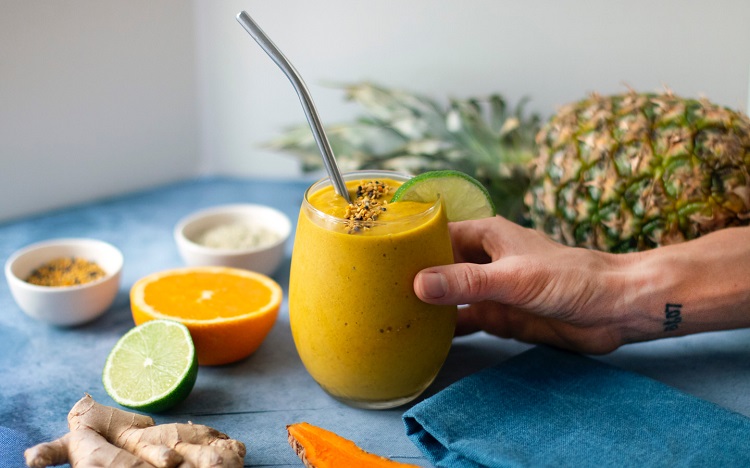
- Drink less coffee and tea – There are certain substances that inhibit the absorption of iron vegan. This is the case with the tannins contained in coffee and tea and it has been confirmed that consumption 1-2 hours before or after a meal can reduce intake by up to 90%.
- Calcium inhibits iron absorption – If you are taking calcium supplements, you should take them at least 2 hours before your meal.
Suitable vegetable iron sources – legumes
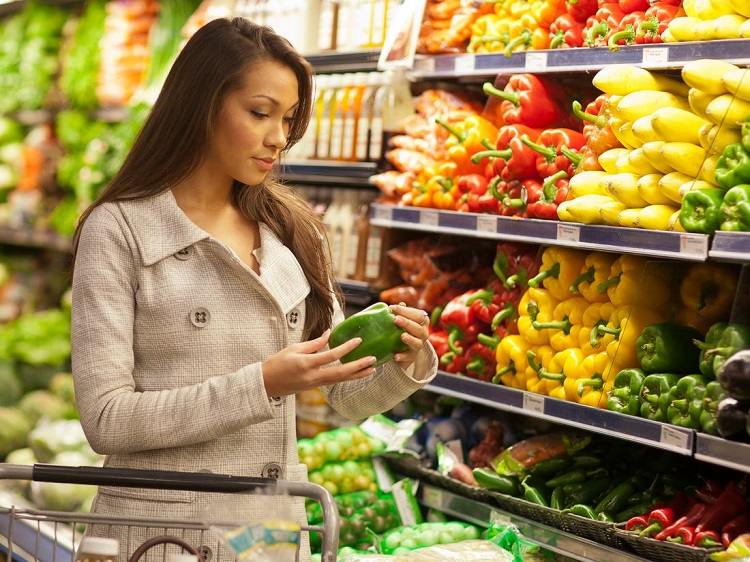
Iron is responsible for the oxygen transport in the body and if you are under-supplied with it, you often feel tired, limp and often suffer from severe headaches. Below we show you the best plant foods that contain a high iron content. Although legumes are primarily known as suitable protein suppliers for vegans, they also provide our body with plenty of iron. Some legumes provide this much iron per 100 grams:
- Soy protein – 11 milligrams
- Kidney beans – 8.3 milligrams or about 30% of the recommended daily allowance. In addition, beans are an excellent source of complex carbohydrates, fiber, folic acid, potassium and phosphorus. Regular consumption of beans lowers blood pressure and cholesterol levels.
- lenses not only deliver 8 milligrams of iron vegan, but also contain about 18 grams of protein – real all-rounders.
- Mung beans – 6.9 milligrams
- Chickpeas – 6.2 milligrams
- Tofu, tempeh and soybeans – 5.8 – 6 milligrams
- Black beans – 5 milligrams
Nuts and seeds
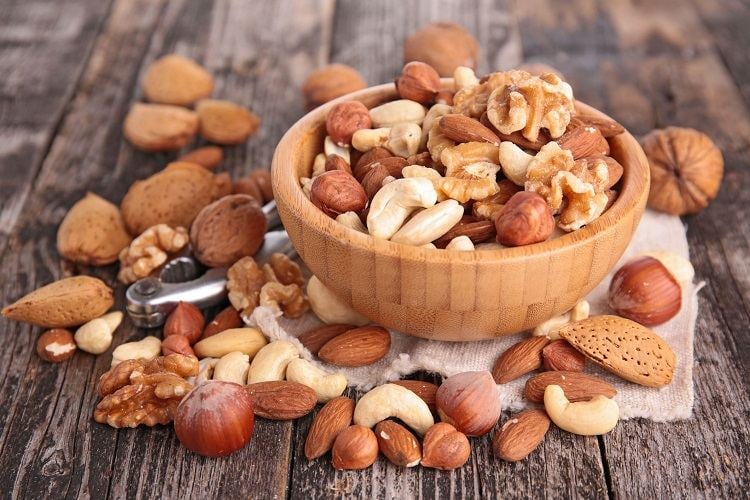
Not only are nuts and seeds particularly rich in protein, but they are also excellent sources of vegetable iron. Whether as a snack in between, as an addition in muesli or smoothies or as a topping with a salad – they are very versatile. Try adding the following varieties to your diet:
- Pumpkin seeds – 12.5 milligrams. A handful of these already covers the daily requirement for iron vegan.
- Sesame – 10 milligrams. Tahini paste from sesame is a very popular ingredient for salad dressings, and 2 tablespoons of it already provide us with around 3 milligrams of iron. In addition, sesame seeds contain a lot more calcium than milk, yogurt and curd.
- Hemp seeds In addition to 10 milligrams of iron, they also contain large amounts of healthy omega-3 and omega-6 fatty acids.
- linseed provide 9.6 milligrams of iron and due to their high fiber they stimulate digestion and keep us full for a long time.
- Pistachios At 7.3 milligrams, iron is also one of the best iron vegan suppliers. They also contain 15 grams of protein per 100 grams and are ideal for preparing protein-rich meals.
- Cashews – 6.4 milligrams
- Pine nuts – 5.2 milligrams
- Almonds – 4.1 milligrams
Iron vegan – Which types of vegetables are good suppliers of iron?
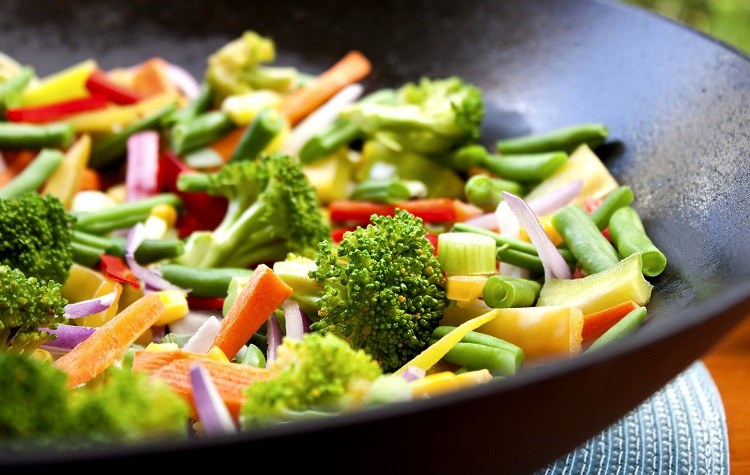
Not only legumes and nuts are good sources of vegetable iron, but also some vegetables are perfect for this.
- Chanterelles and other mushrooms contain 6.5 milligrams and even exceed the iron content in beef!
- Spinach – 4.1 milligrams and the high vitamin C content promote iron absorption even more.
- Fennel and chard – 2.7 milligrams. Another advantage of Swiss chard is its high vitamin K content – just a handful of it covers our daily needs.
- Potatoes – A medium-sized potato contains approximately 3.4 milligrams of iron. However, the nutrient is mostly concentrated in the shell. In addition, a large potato can meet up to 46% of vitamin C and potassium requirements.
- cress provides about 2.6 milligrams of iron and is also very rich in calcium, vitamin C and A.
- Carrots – 2.1 milligrams
- Peas – 2 milligrams. The vegetables are also a wonderful source of protein and contain a lot of fiber that supports our digestion.
- Radishes – 1.5 milligrams
- Broccoli – 1.5 milligrams
Some types of fruit and dried fruit also contain large amounts of iron
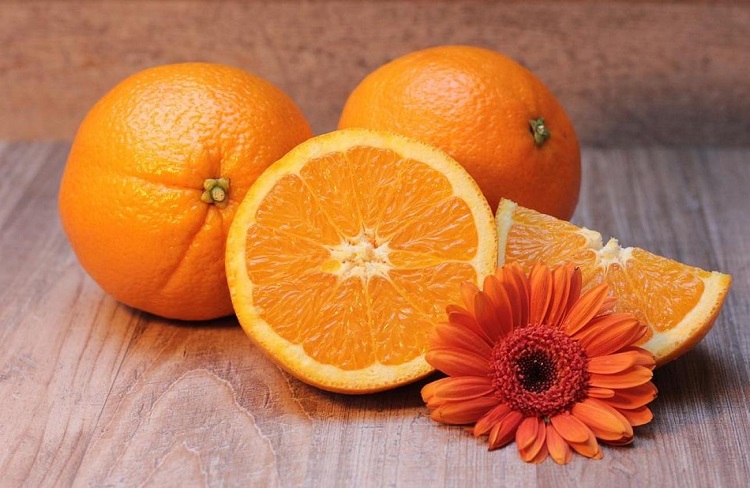
When it comes to iron vegan, fruit would probably not be the first thing to think about. Nevertheless, some types of fruit are surprisingly good vegetable iron sources.
- Mulberries – 2.6 milligrams
- fresh berries (Blackberries, blueberries and currants) – 0.7 to 1.8 milligrams
- Elderberries – 1.9 milligrams
- Raspberries – 0.9 milligrams
Dried fruits are also a perfect snack in between and contain significant amounts of iron. It is particularly important to make sure when purchasing that they do not contain any chemical additives or harmful preservatives.
- Dried peaches – 6.5 milligrams
- Dried apricots provide 4.4 milligrams of iron.
Cereals and cereal products
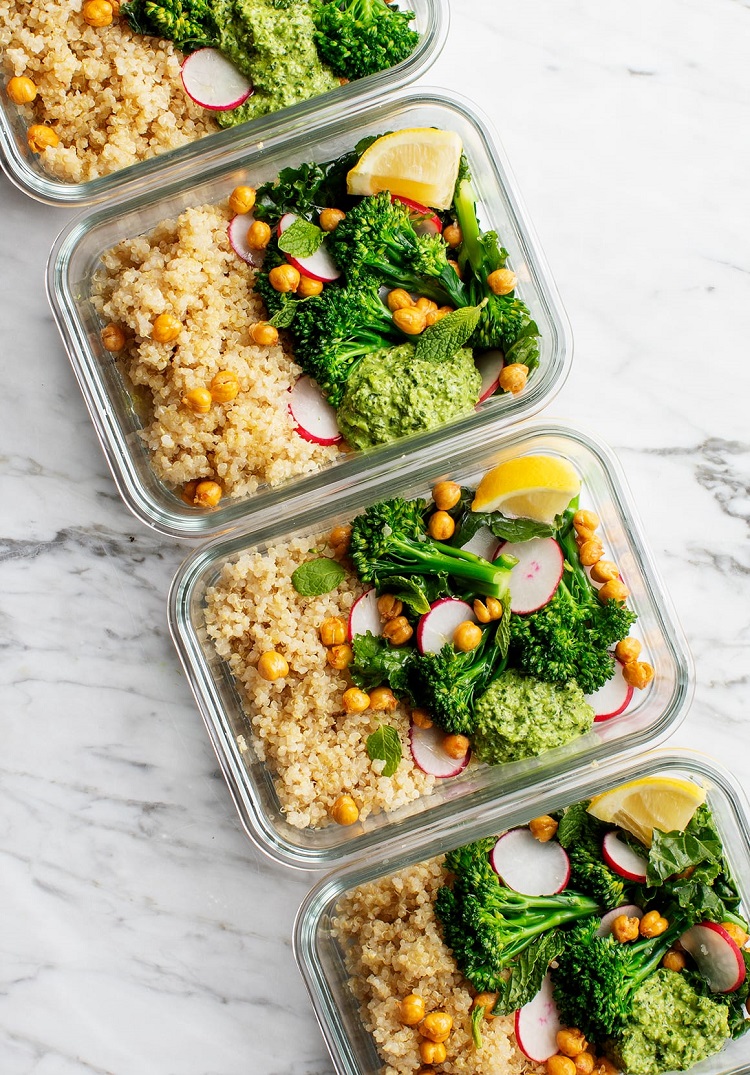
In addition to lots of healthy fiber, most grain products also contain a lot of iron.
- Amaranth contains no gluten and is also known as pseudo grain. It provides a whopping 9 milligrams of iron per 100 grams and is also very high in protein and calcium.
- Quinoa is an excellent gluten-free alternative to travel and contains 8 milligrams of iron. Quinoa's high antioxidant content lowers the risk of type 2 diabetes and high blood pressure.
- Millet – 6.9 milligrams
- oatmeal with 5.1 milligrams are a tasty and easy way for iron vegan. In addition, oats contain soluble fiber called beta-glucan, which can promote healthy intestines and lower cholesterol and blood sugar levels.
- Spelt – 4.2 milligrams
- Whole grain pasta – 3.7 milligrams
- Brown rice – 3.2 milligrams
Overview of other vegetable iron sources
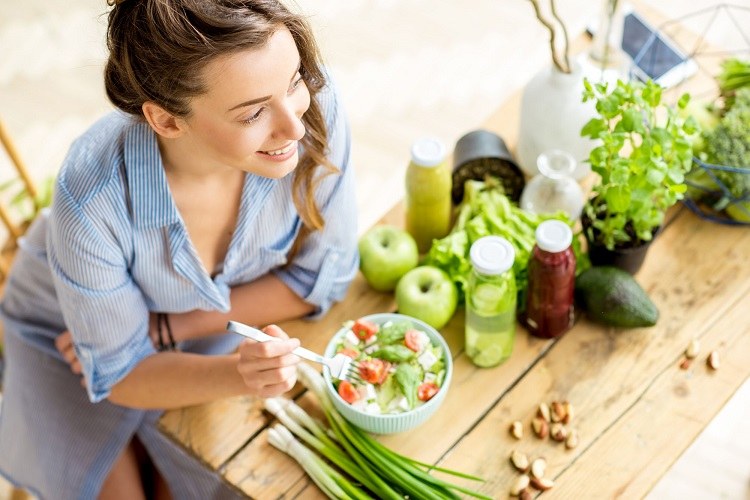
- Canned coconut milk is a delicious vegan alternative to conventional cow's milk. Although it is very high in fat, it is a wonderful source of iron at 3.8 milligrams per 100 ml and contains other important vitamins and minerals, including copper and magnesium.
- Dark chocolate with a cocoa content of at least 70% contains 3.3 milligrams of iron per 30 grams of serving.
- molasses is a natural sweetener and is much healthier than table sugar. Regarding iron vegan, 2 tablespoons of molasses contain approximately 2.1 milligrams of the nutrient.
Are foods fortified with iron healthy?
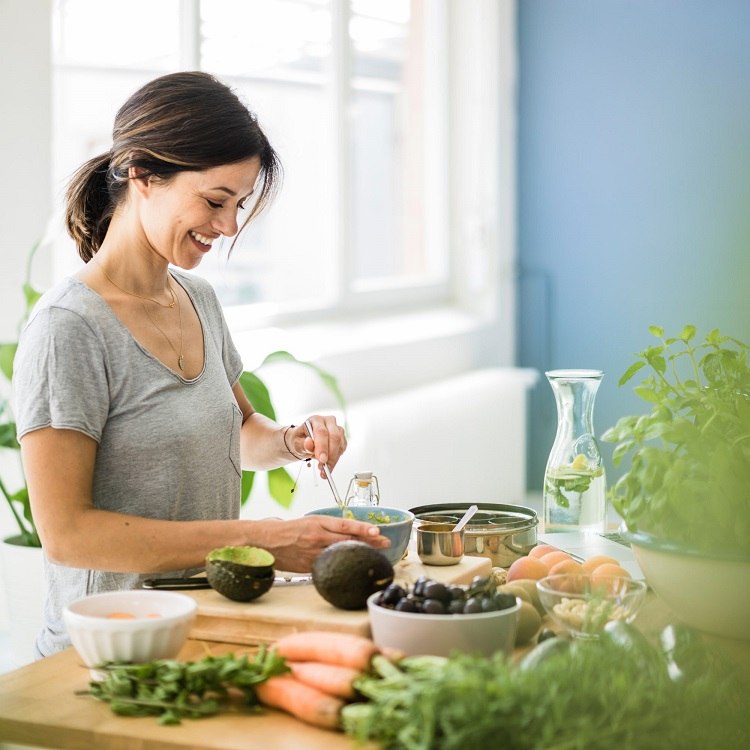
The supply of food in the supermarkets that are artificially enriched with iron is constantly growing. This includes above all mueslis, cornflakes, muesli bars and some drinks. However, most of them contain far too much sugar and should therefore not be consumed. In addition, they harbor the risk of an excess of iron, which is just as harmful to health as an iron deficiency. Increased iron levels can in some cases lead to cardiovascular diseases and are associated with an increased risk of cancer. No matter whether for vegans or meat eaters – in order to avoid the risk of iron deficiency or iron excess, it is important to pay attention to the appropriate healthy diet.
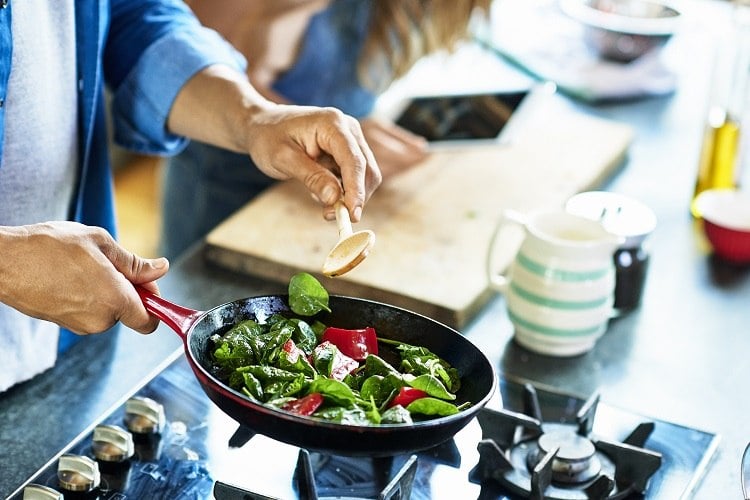
The post iron vegan – suitable vegetable iron sources and many tips to prevent iron deficiency! appeared first on Deavita.com | Living ideas, design, hairstyles, make-up, lifestyle, health and beauty tips.





















